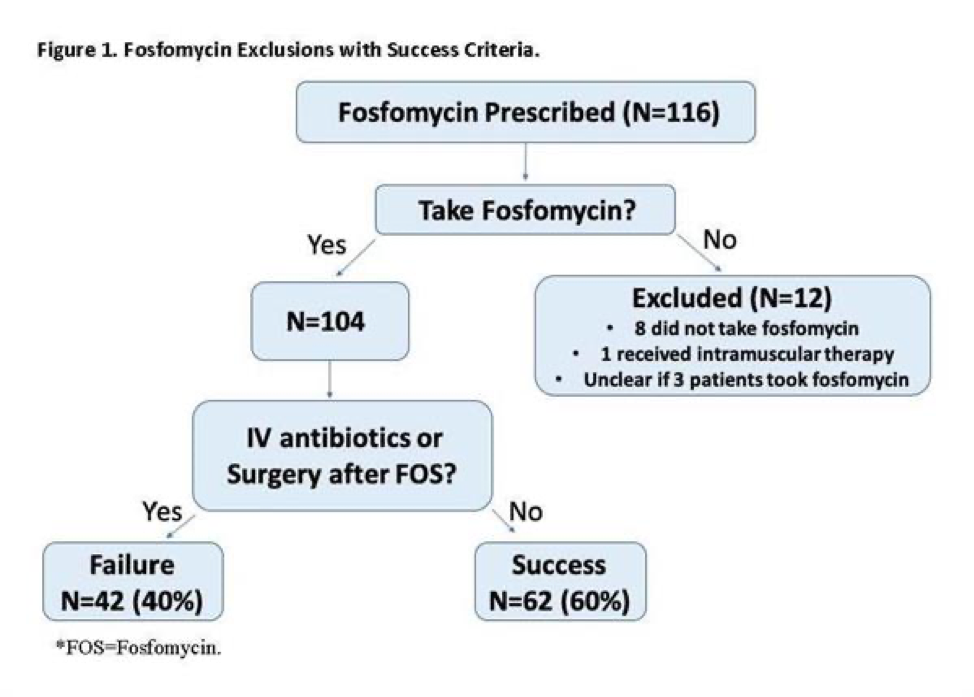This was a retrospective chart review of menopausal women prescribed Fosfomycin (FOS) for antibiotic recalcitrant RUTI at our institution was performed. Excluded were women who never took the prescribed FOS. Data collected included demographics, baseline voiding function/urological anatomic abnormalities, IV antibiotic administration for RUTI, surgical procedures to address RUTI (bladder fulguration, cystectomy), antibiotic allergies, and urine culture results before and after taking FOS including organism resistance profile. FOS success was defined as no need for IV antibiotics or surgery for RUTI following FOS treatment course. Secondary outcomes included factors predicting FOS success and urine culture changes after completion of FOS therapy.
There were 104 women has been met with the inclusion criteria between 2013 and 2019. FOS success rate was 60% at a median follow-up of 1.5 years. No factors were identified that were significantly predictive of FOS success versus failure. Of the 42 patients who failed FOS, failure was followed by IV antibiotic treatment in 24 (57%) of patients, while the remainder received bladder electrofulguration first. When including treatment overlap in these same 42 failures,27 (64%) of patients received treatment with IV antibiotics,24 (57%) underwent bladder electrofulguration, and 2 patients required cystectomy. Escherichia coli was the most commonly isolated organism, with 94% of these isolates being extended spectrum beta-lactamase producers and 40% of all isolates meeting criteria for multi-drug resistance. All but 3 women had repeat urine culture following FOS treatment, and 26 of these cultures were sterile. Of the 68 women with monomicrobial growth at baseline and documented non-sterile urine cultures after taking FOS,36 were infected with the same organism isolated at baseline while 32 were infected with a different organism. The remaining 10 patients had baseline urine cultures that grew more than one organism.
FOS durably avoided the need for IV antibiotic therapies/surgery in the management of RUTI in a majority of women with multi-drug resistant organisms and/or antibiotic allergies.

Presented by: Timothy F. Carroll, BS,1
Co-Authors: Alana L. Christie, MS,2 Bonnie Prokesch, MD,3 Philippe Zimmern, MD1
1U.T. Southwestern Medical Center, Urology,2U.T. Southwestern Medical Center, Simmons Comprehensive Cancer Center,3U.T. Southwestern Medical Center, Infectious Disease
Written by: Bilal Farhan, MD, Assistant Professor, Division of Urology, University of Texas, Medical Branch, Texas; @BilalfarhanMD, at the Society of Urodynamics, Female Pelvic Medicine & Urogenital Reconstruction Winter Meeting, SUFU 2020, February 25 - February 29, 2020, Scottsdale, Arizona


